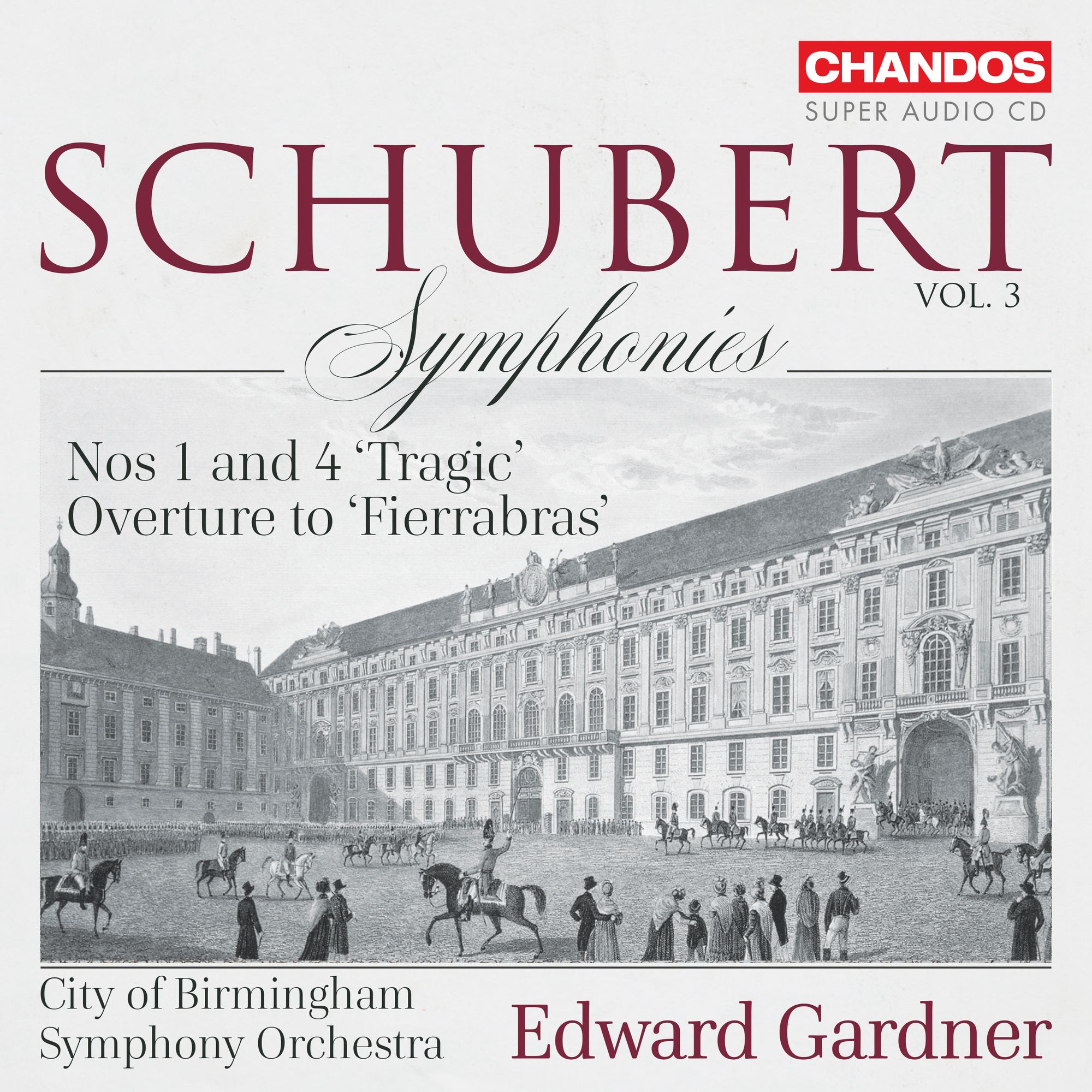Schubert Symphonies from Birmingham (and the Schubertiade Hohenems!)

For the third volume in their cycle of Schubert’s symphonies, Edward Gardner and the CBSO turn to the first and fourth symphonies.
The First Symphony was composed in 1813 (at the age of 16!). One can clearly hear the voices of Haydn and Mozart, and Beethoven for that matter, but it is clear we are already on the Schubertian road to syymphonic greatness.
Gardner's approach is impeccably stylish, but it is with a modern orchestra and one can certainly hear the heft in the first movement, especially given the slightly resonant acoustic of Birmingham Town Hall. The dissonances feel a touch blunted despite the clear fire from the City of Birmingham Symphony Orchestra:
Over on cpo, we have a version by L'Orfeo Barockorchester under Michi Gaigg, part of a (very) complete, four-disc set of symphonies recorded live at the Schubertiade Hohenhems in May 2018 (with some additional patching in May 2018 and ... April 2021!). The set includes a significant number of fragments, plus concert overtures. Gaigg and his forces offer a finely-wrought performance of the first movement, the authentic instrument approach paying off in spades. A pity the recording (strangely, as in the Chandos) is a touch too resonant - a shame given that Gaigg clearly encourages her players to dig into the dissonances in the first movement, particlarly as it hurtles towards its conclusion:
On cpo, it is the pungency of the wind sound that gives the Andante its characteristic sound and emotive power. Yes, there is grace here, but Gaigg finds depth, too:
Gardner's Andante is only five seconds longer than Gaigg's but feels closer to big-boned symphonic Schubert of the early half of the 20th century.
Gardner does find fire in the Menuetto, though (and there is some fabulous oboe playing here):
For the cpo performance here, it is the wind in the Trio that impress:
The finale of the First Symphony (Gardner) has an internal energy, even if some mid-range detail is lost, and Gardner ratchets up the tension incely towards the fiery close :
... yet again I prefer the raw edge of the cpo performance:
Composed three years later, in 1816, the Fourth Symphony, the so-called “Tragic” is scored for larger forces and is much more ambitious in outlook – Schubert seemingly anxious to create a more substantial work. He took more trouble to unify his thematic material across the four movements, and the symphony is clearly closer to the style of his later works.
For his Fourth Symphony, Schubert opts for C-Minor,a powerful key overshadowed of course by Beethoven's Fifth Symphony and , for that matter, Coriolan Overture (plus the ‘Pathétique,’ Op. 111 and Op. 10/1 Piano Sonatas and the String Quartet, Op. 18/4).
I do like the eloquence of Gardner in the slow opening of the first movement ofthe Fourth, but the Allegro vivace feels somewhat blunted - allegro but not wholly vivace:
Listening to the breathlessness of Gaigg in the Allegro, there is vivace a plenty here, the fanfare-like woodwinds crisp and to the point; softzati are punchy and direct, too:
Again, L'Orfeo Barockorchester is supremely expressive in the slow movement, an Andante (and pitched exactly as such, with nice forward movement):
This Andante from cpo offers a real pinnacle of Schubert playing in its grace and carefully judged dynamic contrasts; the Menuetto is more of a Scherzo with L'Orfeo, but it is after all marked Allegro vivace. The Trio is all pastoral woodwind delight (but there's a slightly odd timed gap between Menuetto and Trio):
When it comes to Birmingham, Gardner's tempo is surely leaning towards, if not actually achieving, an Adagio. He certainly squeezes evert last bit of emotion out of the descending phrases. Yet his Menuetto is stylish and fleet-of-foot:
It's the acoustic that mars the finale on cpo, taking away the clear pointing by the players.
Gardner's finale has character, for sure, and there is plenty of discipline from the CBSO:
The Overture to Schubert’s opera Fierrabras completes the album; at Classical Explorer, we previously covered the entire opera in DVD/Bluray format (from the Salzburg Festival in 2016, with the Wiener Philharmoniker here). On Chandos, we have just a bleeding chunk of the 1823 piece, but how brilliantly it begins, almost inaudibly. This could be Weber, in Gardner's hands:
While neither performances offer ideal Schubert, Gardner seems happier in Symphony No. 4 and the Overture than in the First Symphony.
